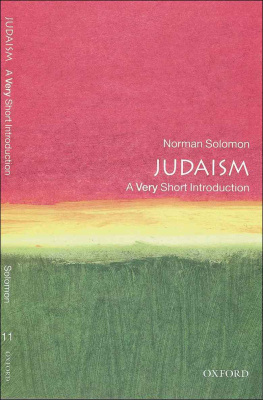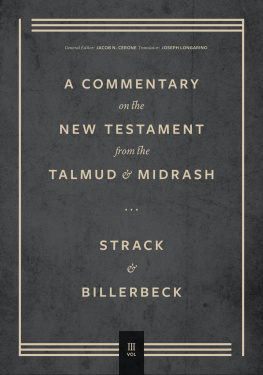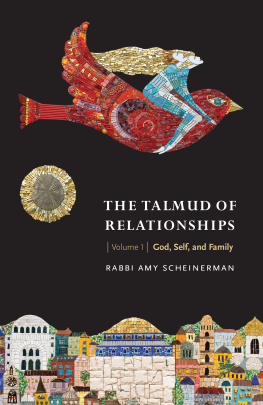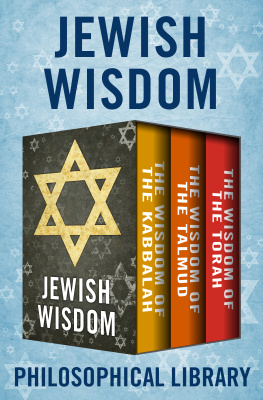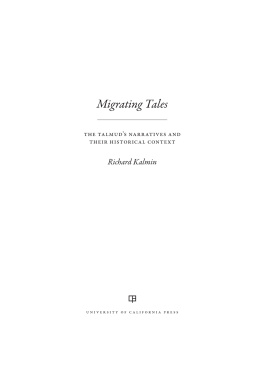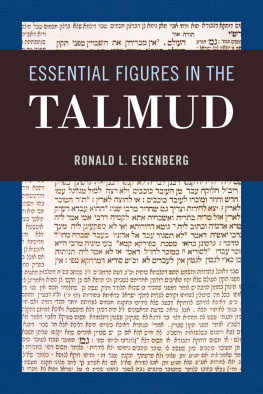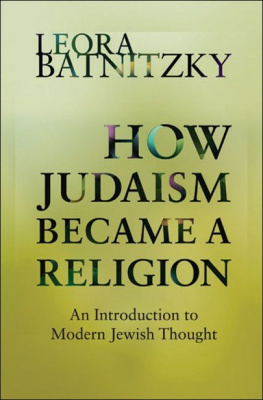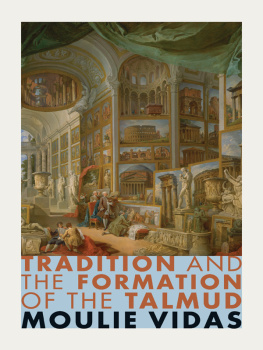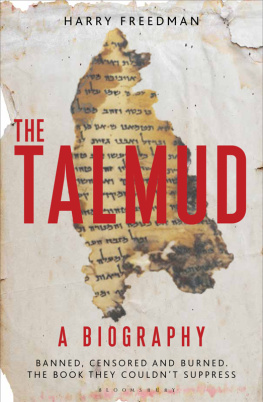NORMAN SOLOMON is a Senior Associate of the Oxford Centre for Hebrew and Jewish Studies and a member of Wolfson College, Oxford. He was born in Cardiff, South Wales, and educated at Cardiff High School and St Johns College, Cambridge. He was ordained in 1961 and served as rabbi to Orthodox congregations in Manchester, Liverpool, Hampstead (London) and Birmingham. He is actively involved in international interfaith dialogue, and 198394 directed the Centre for the Study of Judaism and Jewish/Christian Relations in Birmingham, of which he was a founder.
He is a past president of the British Association for Jewish Studies, and has published more than seventy papers on ethical and environmental topics as well as on various aspects of Jewish studies. His previous books include Judaism and World Religion, The Analytic Movement: Hayyim Soloveitchik and his School, A Very Short Introduction to Judaism and Historical Dictionary of Judaism.
Preface
The Talmud, frequently censored and occasionally banned and burned by the Catholic Church, is one of the most influential, though seldom acknowledged or properly understood, writings of Late Antiquity. It touches and illumines every facet of human life; ostensibly a code of law, it is a refreshingly human document.
Making this entirely new translation and abridgement has given me a great deal of pleasure, but also posed some difficult problems. In particular, how was I to condense about 5,500 large pages (in modern editions) of concise and often obscure Hebrew and Aramaic with commentary, into less than a tenth of that quantity of intelligible English? The selection inevitably reflects personal bias, and I apologize to those whose favourite pages I have omitted; my aim was to include at least something on each significant topic, as well as illustrating the rich variety of styles. A special feature of this volume is that it contains a selection from each of the Talmuds 63 tractates, set out in the traditional order; this should help the reader to appreciate the range and structure of the work as a whole.
People read Talmud for diverse reasons. To the pious Jew, it is an act of piety it is virtuous to meditate on the law of the Lord (Psalm 1:2) even if you cant always make sense of it; no doubt many Daf Yomi readers members of the international circle set up by Rabbi Meir Shapira in 1923 with the aim of getting Jewish men to read a page a day fall into this category. The less religious may read it as an exploration of personal identity, as a source for history or anthropology or law, or perhaps find its way of argument a congenial training for the mind.
And there are different ways to study it. A theologian may mine it for material to support his/her own interpretation of religion, a traditional Jew will look for practical guidance in religious observance, while an academic scholar will harness historical, philological, literary and sociological skills to elucidate the stages of its development and to place it in the broader context of human history.
All these approaches are reflected in this volume, though the volume of available scholarship, both traditional and academic, is so vast that no more than a sample of each can be offered. The emphasis here is on the historical; we must start by asking who the rabbis of the Talmud were, what they were trying to achieve, what sort of world they lived in and how they perceived it. That is why maps, illustrations and a timeline are included the Talmud did not descend in perfect form from the sky, but came into being in this world among real people, with all the worries, confusions and imperfections that implies.
Nor can the text be properly understood without serious consideration of its literary formation who actually compiled the documents of which it consists, what were their motives, how were the documents transmitted and how do they relate to historical reality?
Most readers will not previously have read any Talmud; some will have dipped into it and struggled to make sense of it; others will have lived with it and already feel familiar with its world. I hope there is something for all of them here. As the rabbis wisely observed (agiga 3a), there is no school in which novelty is not to be found, so perhaps even the learned will find some new perspectives in which to set their knowledge. Or they may find errors, in which case let them correct me.
But if you are a newcomer in this strange world, where do you start? How do you take your first steps in the sea of the Talmud, as it is often called?
Apart from your native wit and an inquisitive and open mind, you will need only one piece of equipment for your voyage, and that is a Bible (Old Testament). Use any translation you have to hand, but dont be surprised if it does not correspond exactly with the translation here; the Sages (as the rabbis of the Talmud are more properly called) read the Bible in Hebrew and picked up nuances in its words and idioms which elude a reader unfamiliar with the original language, and I have frequently translated Scripture unconventionally to accord with their interpretation.
There is no need to start at the first page, since the Talmud is not written in a stepwise fashion. Browse, and you will quite soon find something that attracts you, perhaps some amusing anecdote about an incident in the Schools (there is far more humour in the Talmud than it is generally credited for), or perhaps some unexpected gem of wisdom. Make that your starting point. Turn over the pages at random to pick up something of the range and rhythm of the Talmud. Wade in, splash about; you may soon discover that you can swim a few strokes.
If you want to go further than this book can take you, you will need an instructor; by the time you have read it, you should be able to discriminate between who will lead you forward and who is likely to lead you astray.



